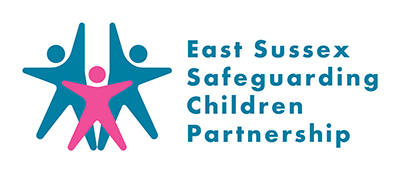Child Sexual Exploitation
What is Child Sexual Exploitation? (CSE)
Sexual exploitation is “someone taking advantage of you sexually for their own benefit. Through threats, bribes, violence, humiliation or by telling you that they love you, they will have the power to get you to do sexual things for their own or other people’s enjoyment.” (Nia Project)
Child sexual exploitation is when children and young people receive something in exchange for sexual activity. It is a form of sexual abuse and can take place through street grooming or online
My child is over the age of 16, is there anything I can do?
There are laws to protect children up to the age of 18 from CSE. Even when they reach the age of 16 a child cannot consent to exploitation. Consent means having the freedom and capacity to choose. Anybody under the influence of drugs or alcohol does not have the capacity to consent to sexual activity.
Click here for advice and support from PACE (Parents Against Sexual Exploitation) or phone: 0113 240 5226
Download this useful guide for parents and carers about child sexual exploitation and what you can do to help your child.
Perpetrators of child sexual exploitation can be found in all parts of the country and are not restricted to particular ethnic groups. Sexual exploitation can happen to boys and young men as well as to girls and young women. It can happen to a person of any background, ethnicity, ability, sexuality or age.
Child sexual exploitation can involve (but is not limited to):
- Seemingly ‘consensual’ relationships where sex is exchanged for attention, affection, accommodation or gifts, including drugs and alcohol
- Organised networks of perpetrators who may use younger men, women, boys or girls to build relationships and introduce other young people to the network
- Unwanted pressure from the child’s peers to have sex or sexual bullying by peers, including cyber bullying
- Threatening behaviour by gangs to coerce young people into sexual activities which is then used against them as a form of extortion and to keep them compliant
- Grooming through casual social relationships formed at common meeting places or parties where drugs and alcohol are involved
- Being introduced to perpetrators by children and young people who are themselves victims of sexual exploitation
- Online grooming; this could involve an adult pretending to be a child and befriending the child through internet chat rooms, social networking sites, email or mobile telephone messaging, and
- Targeting young people through their parents or carers by providing drugs, alcohol or money to the parents or carers; this can often mean that the perpetrator is trusted and seen as a potential boyfriend or girlfriend by the family.
What are the signs that may indicate a child is being sexually exploited?
Here is a list of things to look out for (this is not a complete list):
- Going missing for periods of time or regularly coming home late
- Regularly missing school or not taking part in education
- Coming home with unexplained gifts or new possessions (often new mobile phones or SIM cards)
- Socialising with groups of older people, anti-social groups and other vulnerable young people
- Having older boyfriends or girlfriends
- Suffering from sexually transmitted infections
- Displaying inappropriate sexualised behaviour
- Unexplained mood swings or changes in emotional wellbeing
- Self-harming or eating disorders
- Injuries from physical assault, physical restraint or sexual assault, and
- Drug or alcohol misuse.
Often a child will not identify that they are being sexually exploited and so it is important that you:
- Talk to your children about healthy relationships and consent;
- Learn about the risks your child may face online and take practical steps to minimise these. See www.thinkuknow.co.uk/parents;
- Children who are being sexually exploited need persistence, patience and consistency;
- If you are concerned about a child or situations say something!
What should you do to get help?
Phone 999 if the child is in immediate danger
Phone 101 when it is not an emergency
If you have concerns about a child in East Sussex Contact East Sussex Children’s Services Single Point of Advice (SPoA) for advice, information, and referrals to Children’s Social Care:
Phone: 01323 464222
Email: 0-19.SPOA@eastsussex.gov.uk
Mon-Thurs 8.30am-5pm and Fri 8.30am-4.30pm
Other useful organisations:
The YMCA WiSE Project in East Sussex:
The WiSE Project works with and supports young people experiencing or at risk of sexual exploitation in East Sussex. They run awareness raising workshops, group work and give one-to-one support to young people.
Website: www.ymcadlg.org
Email: wise@ymcadlg.org
Email: wise@sussexcentralymca.org.uk
ChildLine: phone 0800 1111
Useful websites
Child Exploitation and Online Protection Centre (CEOP)
CEOP is dedicated to eradicating child sexual exploitation and is part of UK policing.
thinkyouknow
This website is maintained by CEOP and gives advice to children, young people, parents and teachers on internet safety.
Parents Against Child Sexual Exploitation (Pace)
Pace works with parents to enable them to safeguard and stop their children from being sexually exploited. They offer advice and guidance to professionals on how child sexual exploitation affects the whole family.
